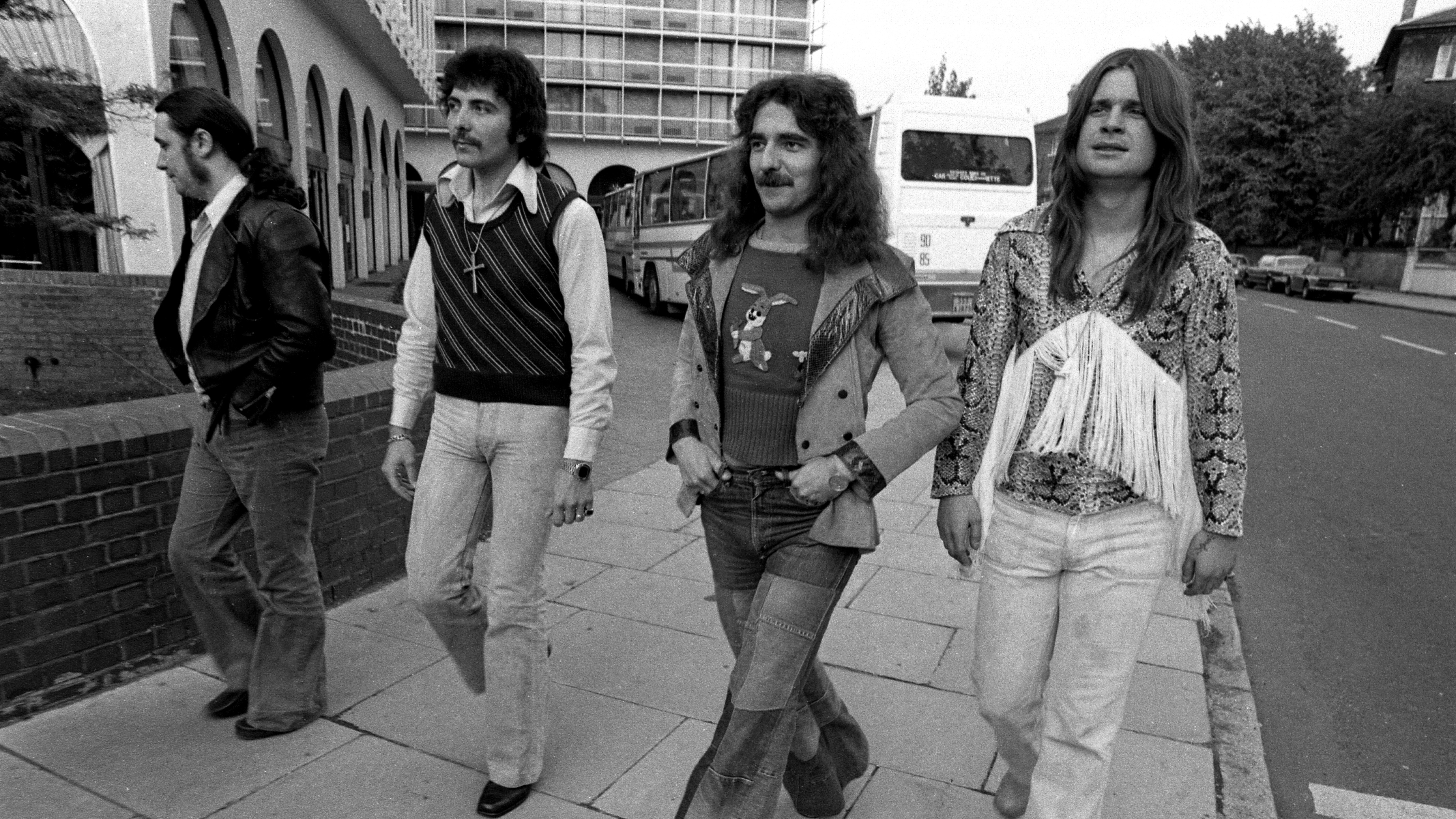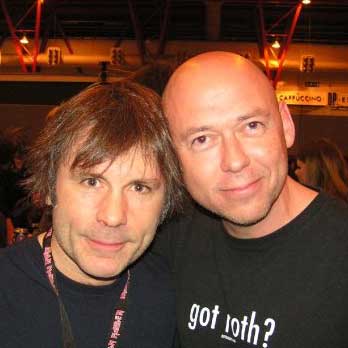“A noise like God conducting the soundtrack to the end of the world!”: The classic Black Sabbath album with the most bizarre song they ever recorded
Drummer Bill Ward called that song “a demonic chant”

In February 1975, exactly 50 years ago, Black Sabbath were working on their sixth studio album Sabotage. It would become one of the greatest and most influential albums in rock history.
It was also the last classic album that Sabbath would make with singer Ozzy Osbourne.
The album was recorded at Morgan Studios in Willesden, north-west London, a state-of-the-art facility where Sabbath had made their previous album, Sabbath Bloody Sabbath. The band worked at Morgan for a total of four months, split into three-week sessions.
Mike Butcher had been the engineer on Sabbath Bloody Sabbath, and he was charged with producing Sabotage.
In an interview withy Classic Rock, Butcher recalled that the sessions ran to a loose schedule. “I’d arrive at two in the afternoon, but the band wouldn’t start showing up until four. And because Morgan had a bar, that’s where the guys would wait for the others to arrive. So most days, we’d start work at nine and go through till one or two the next morning.”
Guitarist Tony Iommi – identified by Mike Butcher as Black Sabbath’s “unofficial leader” – stated that Sabotage was in part a reaction to the complex style of Sabbath Bloody Sabbath, on which the band had combined their signature heavy metal with elements of progressive rock, aided by Yes keyboard player Rick Wakeman and even an orchestra.
“We could’ve continued getting more technical,” Iommi said, “using orchestras and everything else. But we wanted to do a rock album.”
Get the MusicRadar Newsletter
Want all the hottest music and gear news, reviews, deals, features and more, direct to your inbox? Sign up here.
Iommi said of Sabotage. “The sound was a bit harder than Sabbath Bloody Sabbath. My guitar sound was harder.”
Iommi’s heavy riffing is the dominant tone on Sabotage, not least on the song chosen as the album’s opening track, Hole In The Sky, which begins with the hum of amplifiers set at maximum volume and a scream of “Attack!”
The scream was an in-joke, delivered by Mike Butcher, who explained:“Sabbath had a supporting act who had a manager who would stand behind them on stage shouting, ‘Attack! Attack!’” says the producer. “So that’s what I shouted from the control room through the Tannoy.”
Even heavier was the album’s most famous and influential song, Symptom Of The Universe. Its bludgeoning, staccato riff would provide the template for Metallica and countless other metal bands, but it was more than a one-note head-banger. It ended in a funky coda, created by the band jamming while recording the track and subsequently overdubbed with acoustic guitar.
There were more left turns throughout the album. Iommi may have set out to make a more straightforward rock record, but Sabbath continued the experimentation they started on Sabbath Bloody Sabbath. And, ironically, it was Iommi who created the most bizarre and unorthodox song ever to feature on a Black Sabbath album: Supertzar.
More atmospheric even than the song that gave the band its name, Supertzar was a dark, dreamlike piece featuring the English Chamber Choir, and described by drummer Bill Ward as “a demonic chant”. Tubular bells, played by Ward, carried an echo of the 1973 movie chiller The Exorcist.
On this track, the only connection to conventional rock music was Iommi’s slow guitar riff, played like a death march.
Ozzy had no part to play on Supertzar, but what he heard as he observed the song being recorded was, in his words, “a noise like God conducting the soundtrack to the end of the world”.
Iommi said, with characteristic reserve, that “it sounded really different and really great”.
In stark contrast was Am I Going Insane (Radio), essentially a pop song written by Ozzy on a Moog synthesiser, which he played on the finished track.
“Oz drove us all nuts with that Moog thing,” Ward recalled, “but the song was great. And in hindsight, it was kind of a precursor for his solo career. His personality was blooming on this song.”
The ‘Radio’ in the title was British rhyming slang: Radio Rental – mental.
As bassist Geezer Butler said, Ozzy’s lyrics were “definitely autobiographical”.
Sabotage is essentially the connoisseurs’ Black Sabbath album.
A retrospective review in Rolling Stone stated: “Sabotage continues the theme of themeless epic suites with twisted stoner-prog anthems that rock as hard as the early days, but also hyperextend themselves in unexpected ways.
“It might be the most underrated of their albums, and was certainly the original band's last stab at greatness together.”

Paul Elliott has worked for leading music titles since 1985, including Sounds, Kerrang!, MOJO and Q. He is the author of several books including the first biography of Guns N’ Roses and the autobiography of bodyguard-to-the-stars Danny Francis. He has written liner notes for classic album reissues by artists such as Def Leppard, Thin Lizzy and Kiss. He lives in Bath - of which David Coverdale recently said: “How very Roman of you!”
You must confirm your public display name before commenting
Please logout and then login again, you will then be prompted to enter your display name.
"It was ugly, like watching a divorce between four people. After a while, I had to get out": Beatles engineer Geoff Emerick on the recording of Abbey Road, track-by-track
"I said, “What’s that?” and they said, “It’s what Quincy Jones and Bruce Swedien use on all the Michael Jackson records": Steve Levine reminisces on 50 years in the industry and where it’s heading next











